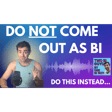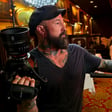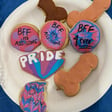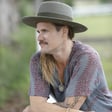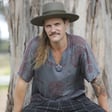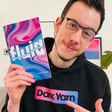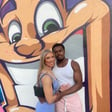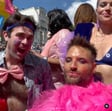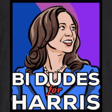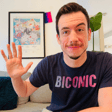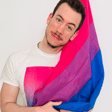
"Bisexual Men Exist" is Just the Beginning for Vaneet Mehta
Vaneet is back, and since his last visit to Two Bi Guys, he wrote his first book, "Bisexual Men Exist: A Handbook for Bisexual, Pansexual and M-Spec Men" -- available now wherever books are sold! We chatted about the process of researching, writing, and promoting his book before diving into its contents: Bi+ representation in media, coming out, dating and relationships, M-Spec intersectionality, what "M-Spec" means and why Vaneet wanted to use an "agnostic" term like that in his book's title, how queerness crosses over between sexuality and gender, how to find pride in a Bi+ or M-Spec identity, and much, much more.
If you've listened to this podcast before, you probably already believe that Bi+ men exist, but in Vaneet's book, this is the BEGINNING of the conversation, not the ultimate message. We exist, AND once we get beyond convincing people of this basic truth, there's so much more to discuss and learn about our community. Listen for an in-depth, free-flowing, true Bi+ 2.0 conversation, featuring two bi guys!
There are over 25 minutes of bonus content with Vaneet on my new Patreon -- we chatted more about dating and the huge variety of relationship styles among the Bi+ community, why certain relationships can be considered a success even if they eventually end, Bi+ invisibility in mental and sexual health research, intersectionality with a focus on the asexual and aromantic spectrums, and more about the challenges of writing Bi+ books in general and what we’d like to see more of in the Bi+ activist space. Subscribe here: www.Patreon.com/RobertBrooksCohen
Thanks for listening!
Buy Vaneet's book: https://us.jkp.com/products/bisexual-men-exist
Follow Vaneet on IG: https://www.instagram.com/nintendomad888/
Get 20% off Liquid I.V. -- https://zen.ai/APzgr1I0sD6_kQntndiKfA
